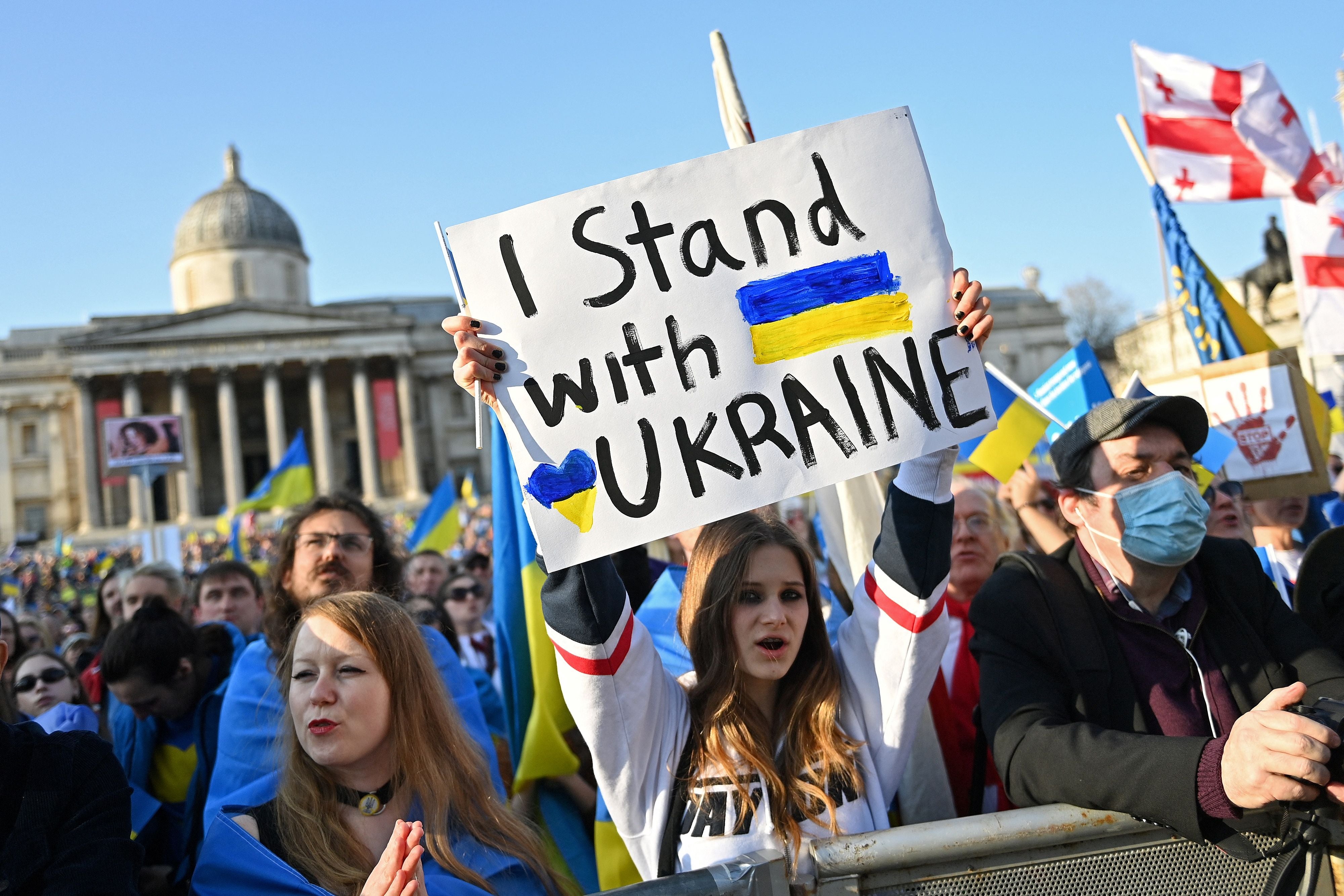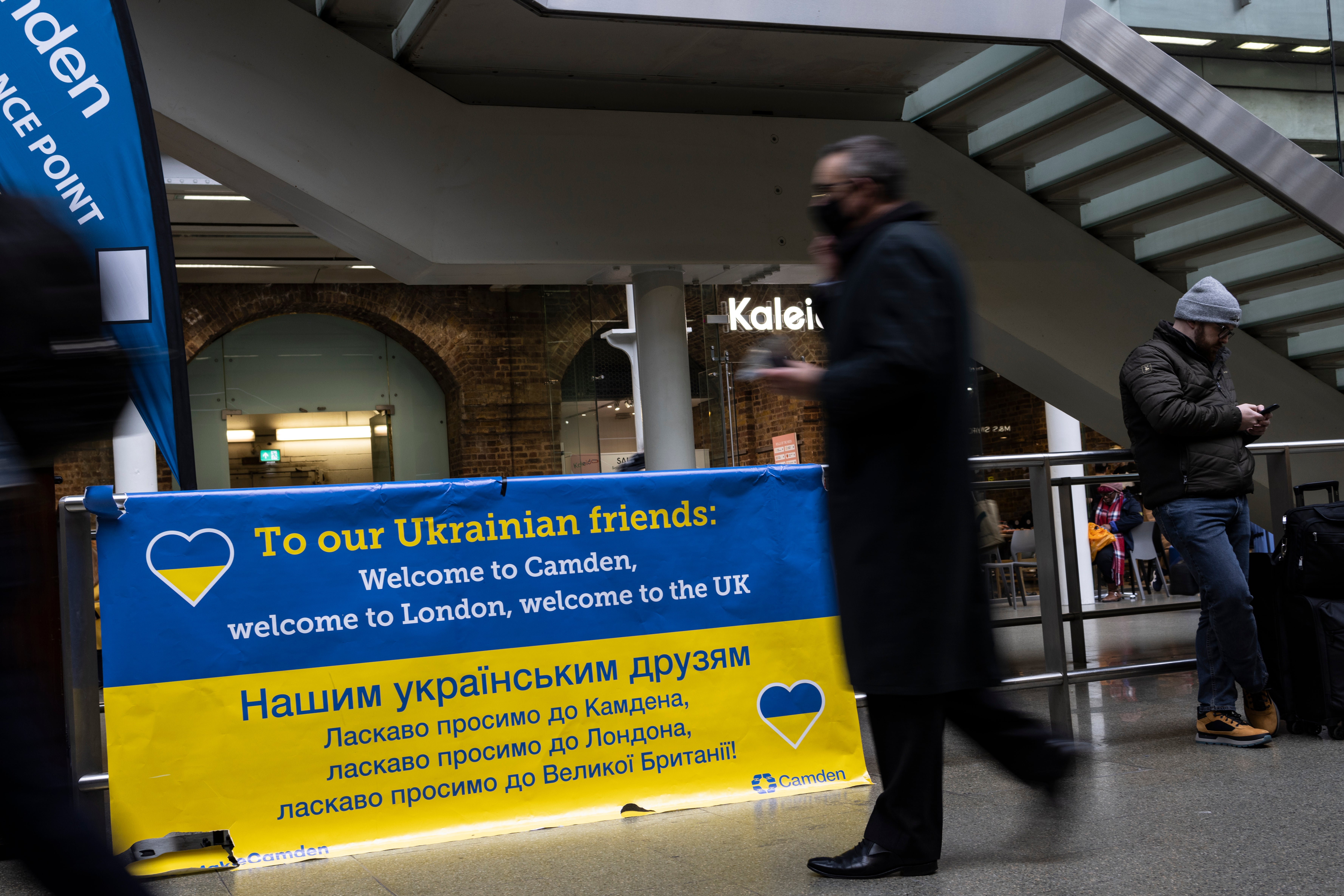Thousands of Ukrainian refugees living in hotels as councils struggle to deal with rising homelessness
Charities warned the government was ‘repeating its mistakes’ by letting Ukrainians be housed in hotels
Your support helps us to tell the story
From reproductive rights to climate change to Big Tech, The Independent is on the ground when the story is developing. Whether it's investigating the financials of Elon Musk's pro-Trump PAC or producing our latest documentary, 'The A Word', which shines a light on the American women fighting for reproductive rights, we know how important it is to parse out the facts from the messaging.
At such a critical moment in US history, we need reporters on the ground. Your donation allows us to keep sending journalists to speak to both sides of the story.
The Independent is trusted by Americans across the entire political spectrum. And unlike many other quality news outlets, we choose not to lock Americans out of our reporting and analysis with paywalls. We believe quality journalism should be available to everyone, paid for by those who can afford it.
Your support makes all the difference.Thousands of Ukrainian refugees are being housed in hotels as councils struggle to deal with a rising number becoming homeless.
Nearly 3,000 Ukrainian households have presented themselves as homeless to English councils since the end of February 2022.
And with renting privately becoming “all but impossible” and limited social housing available, many councils have had no choice but to place them in temporary accommodation when their Homes for Ukraine or family sponsorships break down.
Councils have said that the “growing number” of Ukrainians presenting as homeless is placing pressure on local services.
Are you currently being housed in a hotel or temporary accommodation? Get in touch at holly.bancroft@independent.co.uk
Freedom of information figures obtained by The Independent from 134 of 181 district councils in England show at least 668 households – 1,618 people – have been accommodated in hotels since March 2022. A further 406 households have been placed in temporary accommodation, such as a local authority flat or other social housing.
At least another 4,107 are being housed in hotels in Wales and Scotland, many for months on end. In Scotland and Wales, Ukrainians who arrive on the Super Sponsor scheme are put in hotels or on cruise liners until they are matched with a host family. This is different to the system in England, where Ukrainians must present themselves as homeless to councils before they are found alternative accommodation.
Opora, a charity that helps Ukrainians in the UK, warned the numbers could be much higher.
According to a recent survey of over 3000 Ukrainians in the UK, around 4 per cent said they were still awaiting allocation to sponsor housing. With 110,000 arrivals on the Homes for Ukraine (HfU) visas as of mid-December, that could mean more than 4,400 people, director Stan Benes said.

A further 3 per cent of respondents said that they were already living in some form of social housing with council support – the equivalent of 3,300 people.
Charities warned that the government was repeating the mistakes it made with Afghan refugees by letting thousands of Ukrainians move into unsuitable hotel accommodation.
Lauren Scott, executive director of charity Refugees at Home, said: “People opened their doors under Homes for Ukraine in 2022 as an alternative to housing refugees in hotels. But with no proper move-on strategy in place that’s exactly where many Ukrainians may end up in 2023.”

She added: “The government needs to learn from the experiences of Afghans housed in hotel accommodation and not make the same mistakes. We know of people living in hotels for over a year, with families of five or six people sharing one room.
“There are no cooking facilities, no privacy, little autonomy. There are alternatives to hotel accommodation and some councils are developing schemes to help Ukrainians move into private rented accommodation.”
Adis Sehic, at the migrant charity Work Rights Centre, said that the growing number of Ukrainians being put in hotels would become increasingly costly.
Although councils receive over £10,000 per Ukrainian on the Homes for Ukraine scheme, they do not get specific funding to help house Ukrainians who have come to the UK on the Family Scheme – causing them to dip into their already overstretched homelessness budgets.
He said: “Our frontline team have seen many Ukrainians turning to local authorities for assistance with securing alternative forms of accommodation, given that their hosting arrangements have now broken down.”
Mr Sehic’s team works predominantly with London councils and he said that there was an acute shortage of appropriate social housing in the capital. He added: “We have and expect to see more families placed into costly, temporary accommodation.”
A spokesperson for the Local Government Association, which represents more than 350 councils across England and Wales, said: “We have been raising concerns with government on the growing number of Ukrainians presenting as homeless to councils.
“There is a real crisis in the refugee and asylum system which is compounded by a housing crisis. We are pleased that the government has been working with the LGA and councils on funding.”
A government spokesperson said: “Homes for Ukraine has seen 109,000 Ukrainians welcomed to the UK, thanks to the generosity of sponsors, with most settling in well.
“We know the vast majority of sponsors want to provide support beyond six months, but in the minority of cases where family or sponsor relationships break down, temporary accommodation is a crucial safety net.”
They continued: “We are providing councils with extensive funding to support arrivals and they have a duty to ensure families are not left without a roof over their heads.”




Join our commenting forum
Join thought-provoking conversations, follow other Independent readers and see their replies
Comments